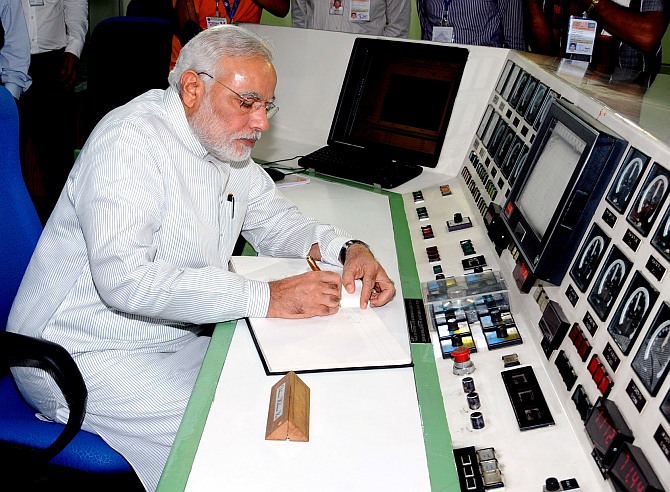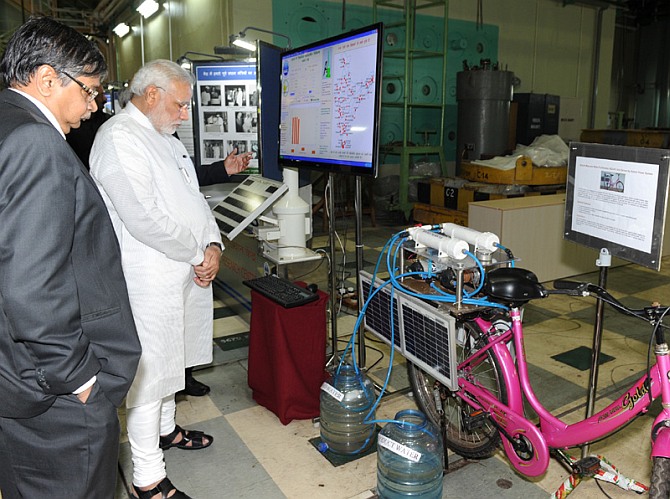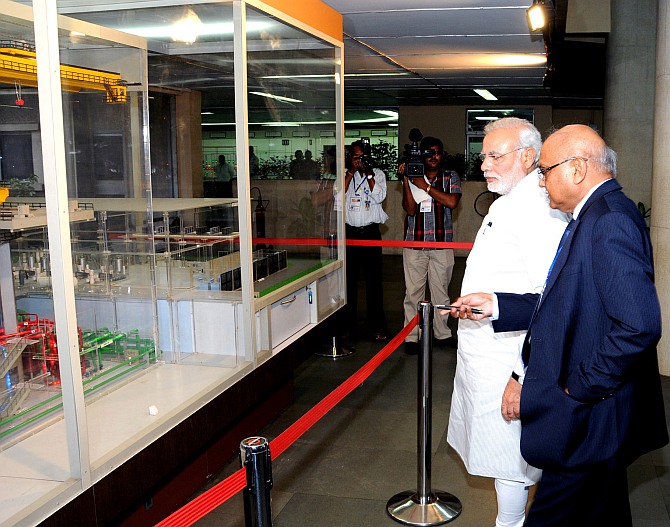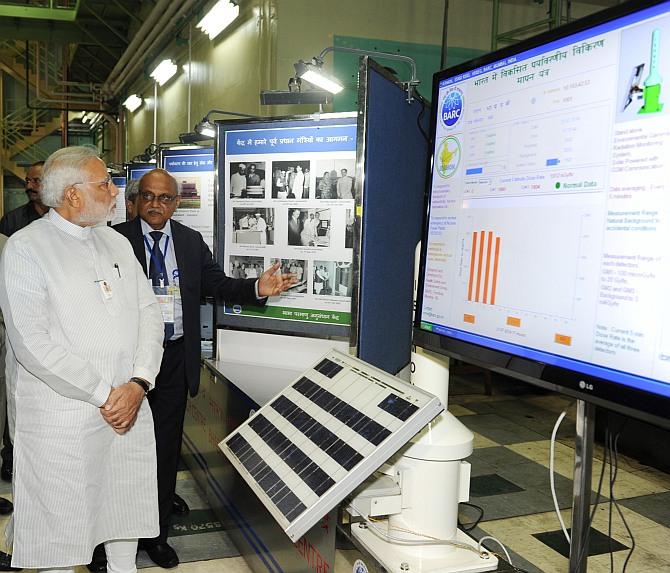 | « Back to article | Print this article |
PM Modi visits BARC; praises scientists
Narendra Modi on Monday flew down to Mumbai on his maiden visit to Mumbai since taking over as Prime Minister.
From the Mumbai airport, where he was received Maharashtra Governor K Sankaranarayanan and Chief Minister Prithviraj Chavan, PM Modi headed straight to the Bhabha Atomic Research Centre where he was apprised of the safety and security measures adopted by the DAE and India's excellent record in this regard.
Accompanied by National Security Advisor Ajit Doval, Atomic Energy Commission Chairman R K Sinha, and BARC director Sekhar Basu, the Prime Minister was shown some of Department of Atomic Energy’s most advanced facilities at BARC, including the Dhruva Research Reactor.
Modi exhorted the DAE to present the human face of India’s capabilities in nuclear science throughout the world.
Please click NEXT to read further...
PM Modi visits BARC; praises scientists
The Prime Minister expressed his strong appreciation for the extraordinary achievements of Indian scientific community in one of the most complex and challenging fields of science and technology.
He said their success was especially creditable because it took place in the face of decades of international technology denial regime; India's self-reliance in the nuclear fuel cycle and the commercial success of the indigenous reactors demonstrated that with vision, resolve and hard work, India could be a front ranking country in the most challenging fields.
He reiterated his belief that energy security, which was increasingly based on clean and reliable sources of energy, was the critical driver of India's rapid and sustained long term development.
He saw an essential role for nuclear energy in India's energy strategy, given the scale of demand in India.
Click NEXT to read further...
PM Modi visits BARC; praises scientists
The Prime Minister assured the DAE of his full support in the implementation of DAE's ambitious expansion programme and expressed hope that DAE would meet the target of increasing the capacity by three times from the present level of 5780 MW by 2023-24 within the projected cost.
Modi underlined the importance of ensuring that nuclear energy remained commercially viable and competitive with other sources of clean energy in the long run. He also asked the DAE to continually upgrade technology, both with regard to our long term plans and international trends. DAE, he said, must also plan for ensuring adequate availability of skilled human resources in the country.
Modi told the DAE that nuclear safety and security were of the highest priority for him and that it should ensure that India's standards and practices were the most advanced in the world.
Please click NEXT to read further...
PM Modi visits BARC; praises scientists
Modi hoped that role of industry in providing equipment and systems for the nuclear programme would continue to grow and recognised that adequate incentive structure should be exist to facilitate that.
He welcomed India's growing international partnership in the nuclear energy and hoped for timely implementation of the ongoing projects in a manner that they met the requirements of techno-economic viability and safety standards.
Technology transfer to India, he observed, was a vital element of his vision for international partnership in India.



